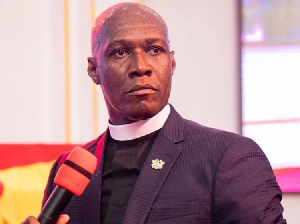By Anthony Kwaku Amoah
Ghana’s education sector continues to receive support from private individuals and institutions. Benevolent persons, NGOs, religious and corporate bodies are all involved despite some financial, logistical and managerial challenges. It would have been very hard for government alone to provide quality education to the teeming populace. Illiteracy, poverty and hunger would have spiraled out of control among citizens.
The education sector is a great beneficiary of private/public partnership. Both local and international bodies have contributed their widow’s mites to education.
The visit by Mr. Bill Gates of the Bill Gates Foundation to the country a couple of days ago is enough evidence of how some global organizations are striving hard to develop our education sector.
Some help to provide quality school buildings, research materials and also support programs like the School Feeding Program. Sometimes, scholarships are given to deserving teachers and lecturers to study abroad for enhanced academic and professional competencies.
Apart from providing quality, accessible and affordable education to citizens, some of these bodies also make scholarly contributions to the development of school curriculum.
From KG up to university, the private sector has performed incalculably in developing education. It deserves the loudest of applause.
It is also surprising that government and the Ghana Education Service (GES) have not made any official arrangement for re-tuition of failed senior high school graduates. There is virtually no remedial program for interested persons to re-sit failed subjects of the West African Examinations Council. For now, such programs are run by only private folks and institutions. Many corners of the country now boast of remedial schools with names like institute, academy, college or pre-university. Affluent individuals and churches usually have university colleges with least consideration for adequate space, facilities and staff. Because it is a free market system, much attention is given to publicity of the courses or programs on offer. Many applicants would want to know which local or international institutions will give out their certificates, diplomas and degrees.
Details of school accreditation and course viability in relation to employment are usually not verified by parents, guardians and applicants. Sometimes, frustrations of applicants in gaining admissions into the few public institutions compel many to overlook some of those details.
Always, GES and the National Accreditation Board (NAB) must work hard to maintain standards. Focus should be more on quality rather than quantity. Also, the use of names like university must be controlled.
The fact that a roadside institution runs few certificate and diploma courses with graduates as tutors is not sufficient justification for the use of the name university.
Even the degree-running institutions need to be regularly monitored by their awarding institutions and regulatory bodies. Available resources must be user friendly and related to programs on offer.
Tutors, lecturers and management must have the wherewithal to affect learners’ lives. There should be more full-time staff than part-time ones. The institution must be in a position to churn out real tertiary education with moderate cost. Though we are told the matter has been resolved, recent order by NAB for Central University College, Methodist University College and others to sack some students for poor entry qualifications was sad and regrettable.
There is the need for sustained private/public partnership in education provision following laid down procedures and standards. Interested investors must know what it takes to render quality service with reasonable cost without abusing the name university.
E-mail: amoatec27@yahoo.com
Opinions of Friday, 12 April 2013
Columnist: Amoah, Anthony Kwaku














